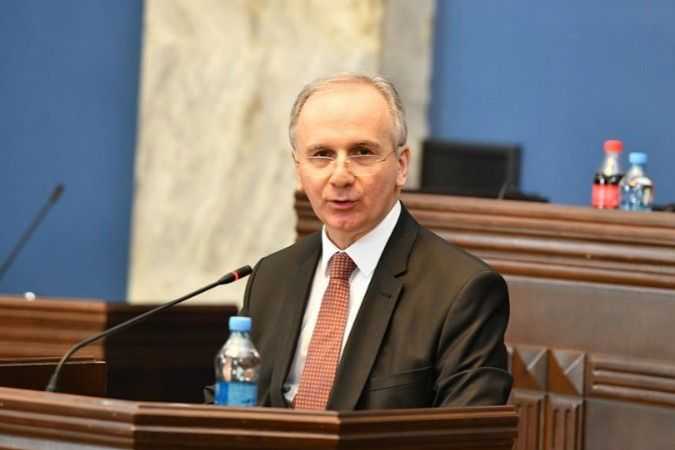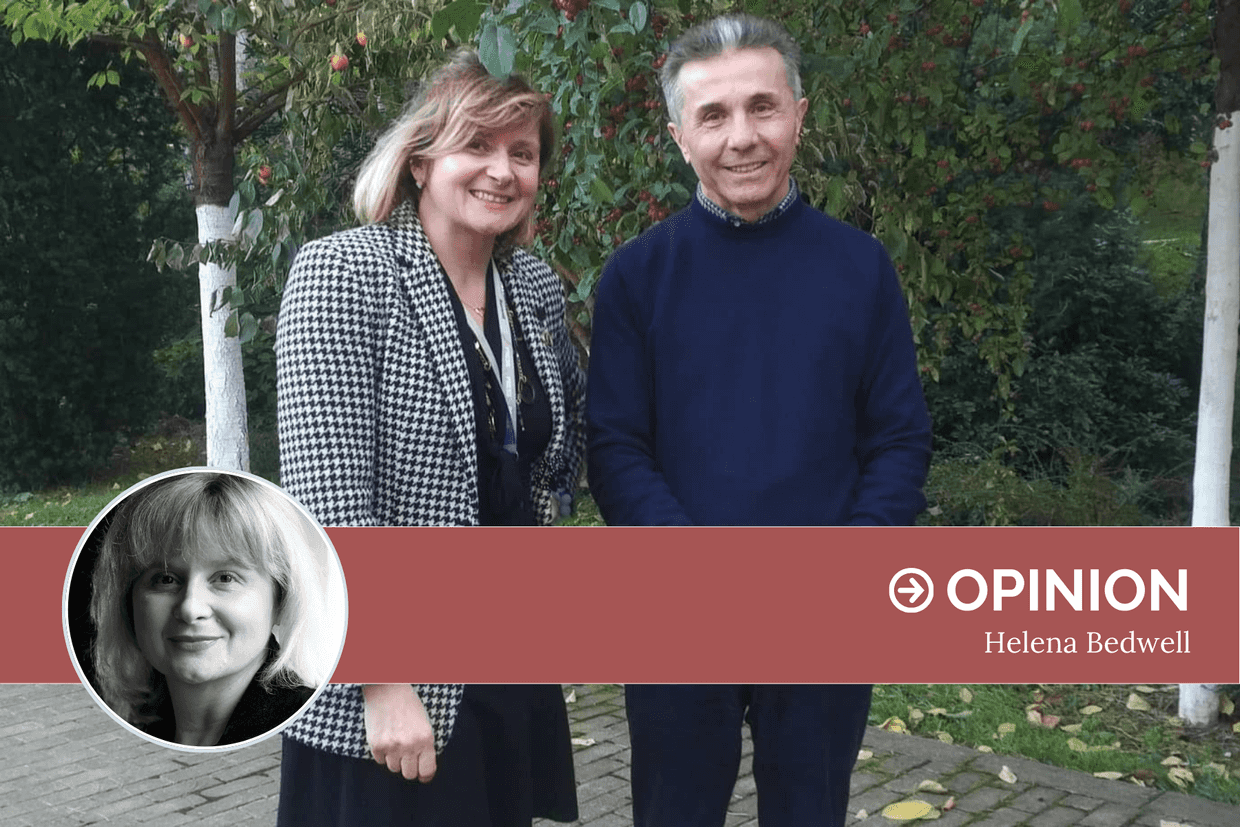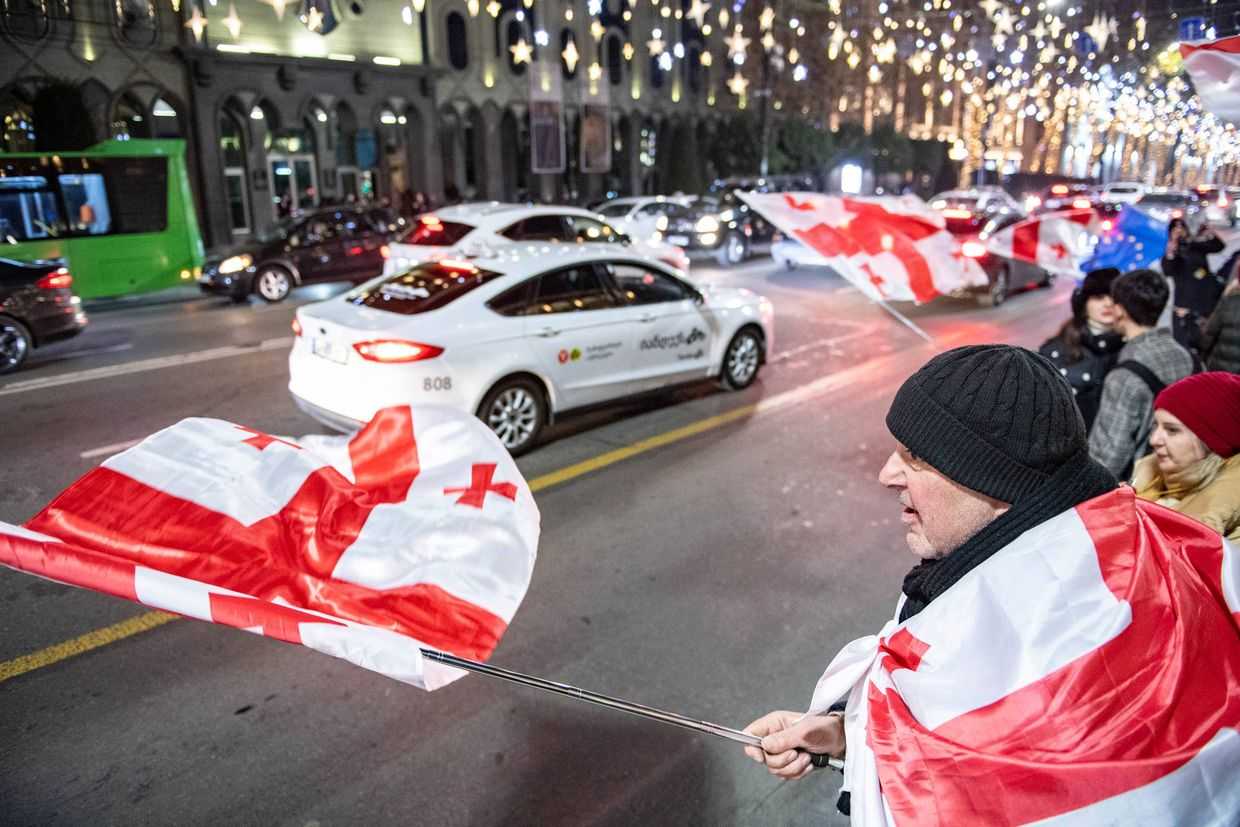
Georgian Dream MP Irakli Zarkua has claimed that a member of the European Parliament, Rasa Juknevičienė, has a ‘menopause problem’ which explains her critical comments about Georgia’s ruling party. His remarks followed Juknevičienė’s speech at the European People’s Party (EPP) Congress, during which a resolution was adopted calling for sanctions against Georgian Dream founder and billionaire Bidzina Ivanishvili.
Zarkua made the comment about Juknevičienė on Thursday while speaking to journalists in parliament. He stated that ‘everyone, when they reach a certain age, becomes inadequate’.
‘I think this lady is experiencing a menopause problem. That’s why she’s making such statements, which are unacceptable to us’, he added.
Zarkua called on Juknevičienė to focus on her own country and the EU, ‘which has become an unauthoritative and ratings-declined organisation in your hands’.
Juknevičienė is an MEP from the EPP group – the largest power in the European Parliament – which also includes Georgia’s former ruling party, the United National Movement.
At its congress currently taking place in Valencia, the EPP adopted a resolution calling ‘on all EU member states and like-minded international partners to immediately introduce coordinated bilateral personal sanctions against Bidzina Ivanishvili and against his family members, companies and network of enablers, and to freeze all Ivanishvili’s assets within the EU’.
The document also called on the European Council to pursue measures necessary to cut off Ivanishvili’s Cartu Bank, founded in Georgia in 1996, from SWIFT and Visa/MasterCard networks.
Juknevičienė, known for her critical stance towards Georgian Dream, once again condemned the ruling party, stating that ‘today we face a very real risk of losing European Georgia to Kremlin-style Georgia’.
‘Georgia has been drifting away from Europe under the rule of Bidzina Ivanishvili for years, but the rigged parliamentary elections in October 2024 have started a new chapter in Georgia’s downfall. Brutal repression, violence, arrests – all out of [the] Kremlin’s playbook’, she said.
She also stated that ‘the current Georgian regime is an example of a successful internal state capture by the Kremlin’ and ‘this could also happen to EU member states if we do not stop this infection in time’.
‘De-Bidzinization of Georgia is our investment into our future and security. Every country that cares about the future of Europe must immediately impose sanctions on Bidzina Ivanishvili and all those responsible for the rigged elections and repression’, said Juknevičienė.
Representatives of Georgian Dream have repeatedly made harsh statements against Western critics of Georgia. In addition to personal attacks, the ruling party has significantly intensified its general anti-Western rhetoric and promotion of conspiracy theories. These include claims about a ‘global war party’ and a ‘deep state’ allegedly seeking to destabilise Georgia.
This week, Georgia’s State Security Service claimed in its annual report that foreign intelligence services — including those from Western countries — attempted to pursue their own interests in Georgia, including plotting a coup last year.
Georgia’s relations with the EU have sharply deteriorated following the ruling party’s adoption of several pieces of repressive legislation, as well as the widespread violations that were documented during the October 2024 parliamentary elections.
Relations plummeted further still after the Georgian government announced it was freezing its EU membership bid, violently dispersing protesters against the decision.
Prior to the elections, the EU suspended over €120 million ($140 million) in aid to Georgia.
At the end of January, the EU also suspended its visa-free regime for Georgian diplomatic passport holders, while member states have imposed individual sanctions on a number of Georgian officials and halted several cooperation projects.











